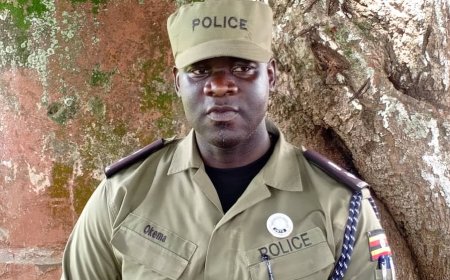Lira Plea Bargain Camp Sparks Hope as Judiciary Tackles 2,500-Case Backlog
Legal experts view the Lira model as a potential blueprint for nationwide implementation. Community leaders and civil society actors who attended the launch called for regularization of such camps, legal aid support, and greater public awareness of plea bargaining rights

By Joseph Okul
LIRA CITY — A wave of cautious optimism is sweeping through Lira Prison as the Uganda Judiciary rolls out a three-day Plea Bargain Camp, aimed at reducing the over 2,500 criminal case backlog burdening the Lira High Court. The camp, running from June 25 to 27, 2025, offers eligible inmates the chance to plead guilty in exchange for reduced sentences or acquittal, depending on their circumstances.
The legal outreach, overseen by the Director of Public Prosecutions (DPP) and the Principal Judge, seeks to address delays in the justice system, promote rehabilitation, and ease the growing pressure on Uganda’s prison infrastructure particularly in the Mid-Northern Region.
More than 300 inmates, including those charged with serious crimes such as murder, defilement, robbery, and rape, have shown interest in participating in the program.
At the official opening, Principal Judge Justice Jane Okuo Kajugo urged stakeholders to approach the process with humanity and honesty.
“Behind every file is a human being,” she said. “Our focus should not be just on clearing files, but on achieving justice and reconciliation.”
Justice Kajugo emphasized honesty during pleas and urged inmates not to misuse the process, warning that insincere participation could disqualify them from leniency. She also revealed that two to three additional High Court judges will be deployed in Lira between July and September 2025 to handle complex or wrongful imprisonment claims.
DPP Hellen Abodo, in her address, noted that her office had already reviewed 213 files in preparation for the camp, with attention paid to potential legal errors and proportionality of charges.
“A prosecutor’s duty is not to convict at all costs. We aim to ensure fairness and protect the rights of both the accused and the complainant,” Abodo stated.
She encouraged victims and complainants to attend the sessions to assess the inmates’ reform and readiness for reintegration.
Resident Judge Margaret Apiny, who oversees the Lira High Court, expressed confidence that the plea bargain camp would significantly reduce case backlog and relieve judicial bottlenecks.
“This intervention is timely and necessary. It’s not just about numbers—it’s about restoring trust in the justice system,” she said.
Justice Apiny recalled how, shortly after her appointment, Lira Prison officials highlighted the dire congestion, prompting her to initiate talks with the Principal Judge and DPP to organize the camp.
According to Godfrey Komakech, Regional Prisons Commander for Mid-Northern Uganda, the region currently accommodates 3,875 inmates and 14 children across 18 prison facilities. Of these, 1,681 inmates are on remand, and 2,187 are convicted. He revealed that with 753 staff, the officer-to-inmate ratio of 1:5 falls below the international standard of 1:3.
Despite these limitations, Komakech hailed the Judiciary’s effort as a major step toward sustainable decongestion.
“We see this not just as a legal exercise, but as a humanitarian effort that restores dignity to those behind bars,” he said.
Inmates interviewed expressed gratitude and hope. One said he had spent three years on remand without trial and was eager for closure.
“I just want to be heard. If I’m guilty, I’m ready to admit it—but I need a fair chance,” he said.
Another inmate added, “We’re not asking to walk free. We’re asking for a second chance and for justice that sees us as people.”
The camp also reflects broader judicial reforms. Plea bargaining, though still relatively new in Uganda, is being embraced as a tool to reduce pre-trial detention, lower case processing times, and align legal systems with restorative justice traditions, particularly in Northern Uganda where reconciliation plays a central cultural role.
Legal experts view the Lira model as a potential blueprint for nationwide implementation. Community leaders and civil society actors attending the launch called for regularization of such camps, legal aid support, and greater public awareness of plea bargaining rights.
As the camp concludes on June 27, its success will be measured not only in the number of cases resolved but in its capacity to restore hope, dignity, and efficiency to a system long burdened by delay.
What's Your Reaction?
 Like
0
Like
0
 Dislike
0
Dislike
0
 Love
0
Love
0
 Funny
0
Funny
0
 Angry
0
Angry
0
 Sad
0
Sad
0
 Wow
0
Wow
0






































































